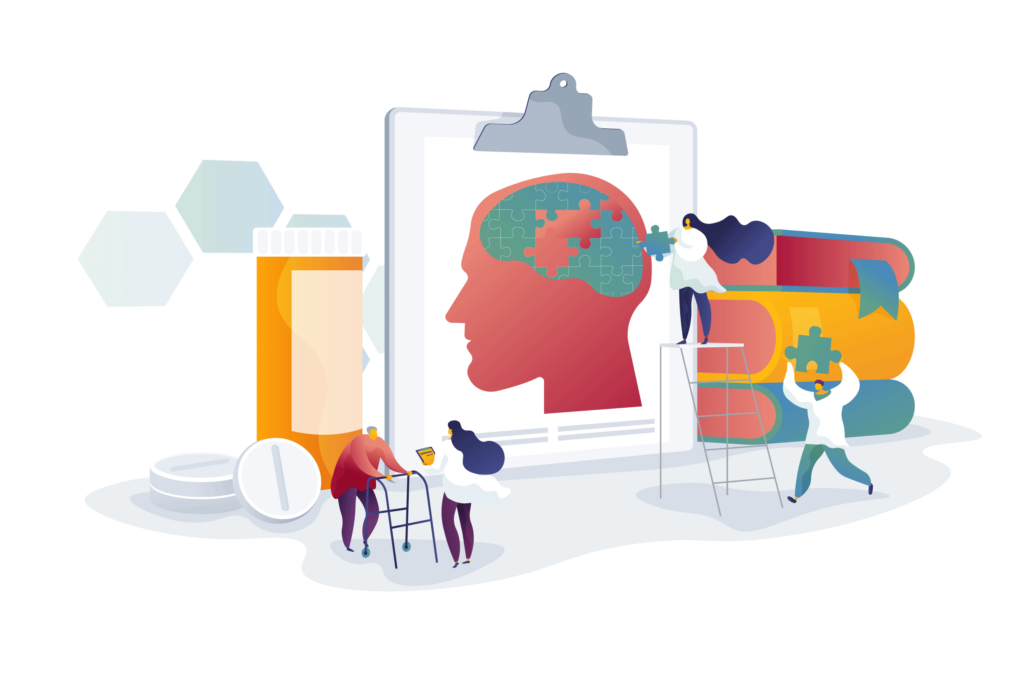Alzheimer’s disease is on the rise, with the number of Americans afflicted by this ultimately fatal condition expected to reach 14 million by 2060. The cost of caring for patients with Alzheimer’s and related dementias (ADRD) is rising dramatically and is projected to reach $1.5 trillion by 2050.
To grapple with the epidemic’s enormous health, economic and social costs, increase knowledge and technological capacity, and build a diverse, global network of social science researchers in the field, the USC Schaeffer Center for Health Policy & Economics is launching a new multi-site center called the Center for Advancing Sociodemographic and Economic Study of Alzheimer’s Disease (CeASES-ADRD).
Established with a $4.1 million grant from the National Institute on Aging, CeASES-ADRD assembles interdisciplinary experts from USC, Stanford and the University of Texas, Austin. Schaeffer Center Senior Fellow Julie Zissimopoulos — an expert in economics and aging, and director of USC’s Resource Center for Minority Aging Research — will direct the new initiative. In addition, CeASES-ADRD will be led by USC Schaeffer Center Director and USC Price School Interim Dean Dana Goldman; Stanford Center on the Demography and Economics of Health and Aging Director Jay Bhattacharya; and Mark Hayward, director of the Population Health Initiative at the University of Texas at Austin.
The new center will explore innovative ways to ease the disease’s toll on individuals, families and caregivers while also developing strategies to reduce its burden on healthcare systems. An international team of researchers will use longitudinal datasets and dynamic microsimulations to forecast national and international trends related to Alzheimer’s.
“Much of the current research into ADRD is focused within biology, biochemistry and pharmaceutical innovation,” Zissimopoulos says. “But we know Alzheimer’s is also a social disease with devastating socioeconomic impacts on persons living with dementia, their caregivers, families, and communities. The social sciences have an important role to play in understanding and developing solutions to the burden of ADRD.” Zissimopoulos also co-directs the Schaeffer Center’s Aging and Cognition Program and is an associate professor at the USC Price School of Public Policy.
Research and Mentorship
“We’re committed to evidence-based research that can be used by the public and private sectors to improve lives,” Goldman adds. “While new therapies are sought, CeASES-ADRD could make a big difference by filling knowledge gaps so we can make more effective policy to help patients and communities.”
In addition to its own investigations, CeASES-ADRD will assemble other leaders in the field for conferences and seminars to exchange ideas and findings. Meanwhile, a web portal will provide access to data, programming and algorithm libraries and data sources to promote further discovery and encourage greater collaboration worldwide.
“Even though there’s an enormous amount of data about Alzheimer’s and its impact, a great need exists to consolidate this information so it can be properly leveraged,” explains Bhattacharya, who is also a professor of medicine at Stanford and a nonresident senior fellow at the USC Schaeffer Center.
As a cure remains elusive, the quest to defeat Alzheimer’s and related dementias threatens to span generations. CeASES-ADRD will support and mentor future social science leaders. These budding scholars will be steeped in the knowledge and techniques needed to pursue high-impact social science research informed by biomedical advances in new therapeutics.
Addressing Disparities
The center will promote diversity and inclusion, as women and minorities have historically been underrepresented in research as well as in populations studied. Enhancing the inclusivity of studies will ensure that the center not only has breadth but specificity in focusing on the needs of all populations affected by ADRD.
“It is vital to understand health disparities in older populations so that we can come up with targeted solutions instead of one-size-fits-all band-aids,” says Hayward, a professor of sociology and an expert in inequities in how socioeconomic factors and events in an individual’s life impact and inform equities in life expectancy and aging. “Partnering with USC on this project provides an exciting opportunity to work across disciplines and schools to develop better research that addresses this pressing issue.”
With wide-ranging experience in addressing Alzheimer’s and other dementias, USC provides the ideal home for CeASES-ADRD. Breakthroughs at the university include mapping Alzheimer’s spread in the brain, developing the first regenerative therapy to be tested for the disease and discovering how leaky blood vessels can indicate early onset.
This project is supported by the National Institute on Aging under the National Institutes of Health, award number 1P30AG066589-01. The content is solely the responsibility of the authors and does not necessarily represent the official views of the National Institutes of Health.
